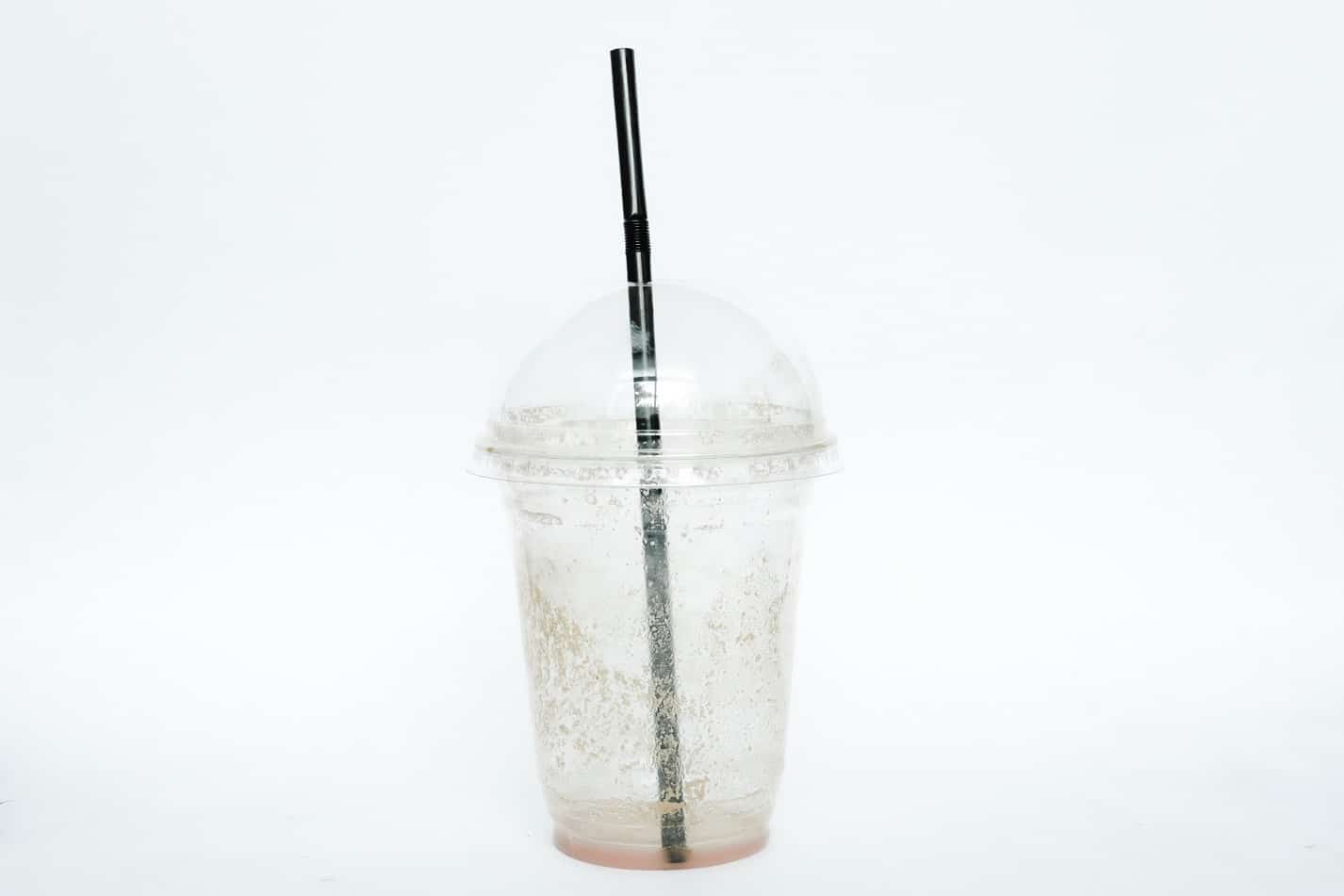
Zero Waste Versus Recycling: What’s The Difference?
For starters, zero waste is not the same as recycling.
Zero waste is a much much bigger concept. The overall goal or strategy is to completely eliminate waste, not manage it.
To send nothing to landfill. Yup, nothing.
In technical terms, it addresses the source of the problem (i.e. the design of the product), creating a circular economy or “cradle to cradle” approach.
In contrast, recycling focuses on the garbage problem itself. The end of an item’s short or single-use life when it becomes trash. It’s the solution to the model we have today which is the linear or “cradle to grave” system.
On a practical level, zero waste means no waste is ever created. How is that possible? Because the single-use or short-term item is replaced with a product which is designed to last, to be reused, repaired and/or recycled over and over again.
Over the last few years zero waste has been trending, which is great. But surprisingly, it’s actually not a new concept. The phrase was coined by a California based company, “Zero Waste Systems Inc.” and was founded by Dr Paul Palmer (PhD chemist) back in the 1970s.
Zero Waste International Alliance’s internationally accepted definition is probably the most well-known summary of what this term means in a nutshell:
“Zero Waste is a goal that is ethical, economical, efficient and visionary, to guide people in changing their lifestyles and practices to emulate sustainable natural cycles, where all discarded materials are designed to become resources for others to use.
Zero Waste means designing and managing products and processes to systematically avoid and eliminate the volume and toxicity of waste and materials, conserve and recover all resources, and not burn or bury them.
Implementing Zero Waste will eliminate all discharges to land, water or air that are a threat to planetary, human, animal or plant health.”
5 REASONS TO STRIVE FOR A ZERO WASTE LIFESTYLE
Much like the sustainable and ethical trends (like cruelty-free vs vegan, organic and natural and low waste living), zero waste is getting a lot of press.
Which makes sense as we become more conscious about the world around us. What brands we choose to support and products we buy. Our habits have a direct impact on the future of the planet.
Just remember “You don’t vote only at the ballot box. You vote every day“.
Here are 5 reasons why adopting a zero waste lifestyle wherever possible is so important!

POPULATION
It’s growing at an incredible rate. The United Nations estimates that by 2030 it will have reached 8.5 billion and ~10 billion by 2050 .
The problem is a limited supply of resources (including space). If we continue to consume the way we do, buying short-lived products, and do not change our “throw-away culture” then we’re eventually, probably sooner than later, going to run out of them.

PLASTIC
As you probably know, a huge percentage of trash (60-80%) ends up in the ocean and most of it is plastic (bottles, caps, plastic bags etc.).
According to the Ellen Macarthur Foundation Report, plastic production has increased 20 times since 1964. It will double again in 20 years and quadruple by 2050. The Report estimates that at least 9 tonnes of plastics leak into the ocean every year.
That’s an entire dumpster’s contents dropped into the ocean every second – sickening!
There will be more plastic in our sea by weight than fish by 2050. This is tragic for our ocean life but also for us humans as this plastic releases toxins, consumed by fish that ultimately ends up on our dinner plates.

GARBAGE
There’s a MASSIVE amount of garbage being produced per person.
Currently, the average adult is responsible for 0.64kg per day of solid trash. By 2025 that figure will more than double – an average of 1.42kg per day, that’s 2.2 billion tons per year!
The proliferation of waste is having a real and detrimental effect on our environment. The need for bigger landfills and more incineration increases methane gas, toxic compounds such as dioxins (linked to cancer), and other heavy metals which ramps up climate change.

RECYCLING
For so long we thought this was THE BAND AID. But it’s not. It’s not even close.
We all think about waste at the end of a product’s lifecycle, when we no longer need it. But most of the waste created in the manufacturing of products occurs long before the garbage actually hits the landfill.
Even though we’ve all been diligently recycling for years, only 5% of plastics are actually recycled. 40% go to the landfill and a third, as we’ve mentioned above, find their way into our delicate ecosystems (oceans, fresh water lakes and rivers – destroying resources that were once the cleanest water in the world).
We’re definitely not saying that you shouldn’t recycle, you absolutely should. It’s just that most of what you do ‘recycle’ will end up in a landfill or the ocean. And it’s for this reason that glass in the glass vs plastic debate is not a clear winner.
Which is why recycling is not THE solution; it should rather be the last resort.

ZERO WASTE
Besides the other benefits like saving time, money and generally feeling like a better person, zero waste living is one of the fastest, easiest and most effective solutions to climate change.
The increase of greenhouse gasses comes from the industrial activity to extract, refine, shape and produce the products we use every day. The EPA estimates that the industrial sector alone accounts for 21% of the USA’s entire greenhouse emissions.
The industries that are driven by our consumption (like transportation and electricity) add up to a whopping 56% of USA’s total greenhouse gasses. In fact, a huge percentage of this statistic comes from the demand for single-use, poorly-designed and short lived products.
Now if every product was designed to last, be reused, repaired and recycled, this would significantly lessen all that activity and directly reduce the amount of waste and greenhouse gasses being create.
5 EASY (AND IMPACTFUL) ZERO WASTE LIFESTYLE HACKS
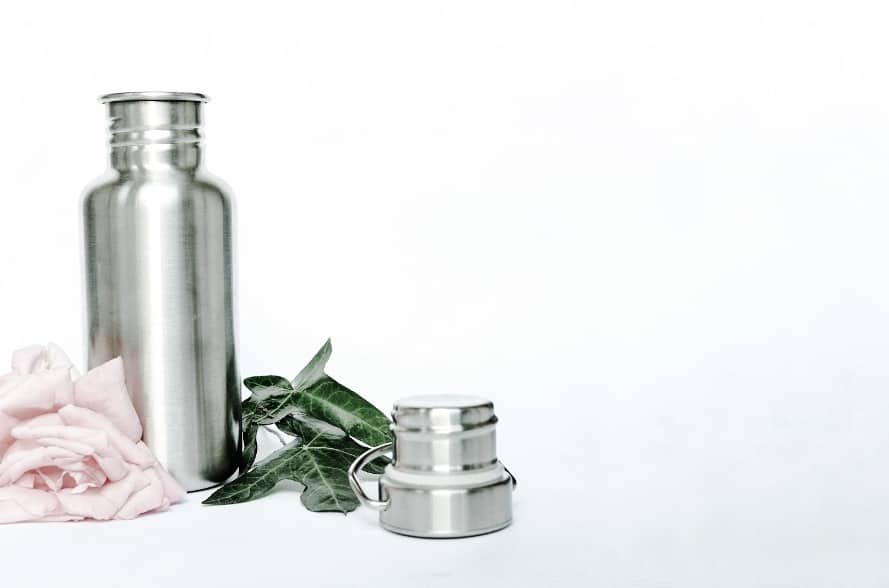
When it comes to purchasing what should be long-lasting consumables (e.g. homewares, eco friendly electronics, ethical furniture, sustainable clothing, zero waste gifts), the ideal would be to first opt for second hand goods from an online thrift store.
They should also be durable products of the highest quality that can be easily repaired, reused, and finally, if it stops working altogether, recycled. For more on this, have a read of our article on properly disposing of old electronics.
For a zero waste lifestyle, shopping at a zero waste online store or general ethical online shop is a really easy way to start reducing your waste.
For more tips on how to reduce your impact check out our top 50 biggest bang for buck zero waste tips.
In the meantime, here are some changes you can do now with very little effort. Over a lifetime these simple zero waste swaps have an impact that cannot be understated.

DRINK BOTTLE
Buy a reusable and sustainable water bottle which can be refilled and reused over and over again.
Ban The Bottle estimates that in the USA alone some 50 BILLION plastic water bottles were purchased last year and only about 23% were recycled. When you consider the energy, carbon emissions and the money spent on this particular industry AND that much of the waste created goes straight into our oceans, this is a super duper no-brainer.
Also, this will save you a money! For some ideas, have a look at a few examples in our zero waste travel tips article.

RE-USABLE COFFEE CUP
Grab yourself a reusable coffee cup for perpetual coffee refills.
Carry your cup estimates around 25 billion styrofoam cups are tossed away every year. About a quarter of that amount is actually recycled. In fact, styrofoam cannot be wholly recycled and lingers in landfills and our oceans for hundreds of years.
If you’re worried about asking your coffee shop to fill up a reusable cup, don’t be! So many amazing people are doing this already and many coffee shops are offering discounts if you bring your own cup.
If you’re still not convinced, Trash is for Tossers’ Lauren Singer has created a fun ‘how to’ video to give you a leg up.

RE-USABLE CUTLERY
This is a big one! Avoid plastic and disposable forks, knives and spoons by either simply asking for or carrying your very own quality set of eco friendly cutlery.
In Pramod Parajuli’s (PhD) research piece “A Life Cycle Analysis: A Plastic Fork”, he uncovers the “ecological, economical and social implications of the plastic utensil economy”.
The amount of waste and pollution created from the production, distribution, consumption and disposal of plastic utensils is horrifying. We’re pretty sure that if consumers were even mildly aware of the real world impact most (if not all) would opt for sustainable solutions, like portable utensils.
If you need further motivation, watch this video of a turtle’s plastic fork nightmare (warning: this is a distressing video, especially for animal lovers like us).

RE-USABLE SHOPPING BAGS
Swap your plastic shopping bags for high quality reusable shopping bags. Dodging plastic is definitely a recurring theme in this article and plastic bags are one of the worst offenders.
I know we’re going overboard with stats too but the numbers really do need to be stated (even though they’re hard to comprehend). According to Ecowatch, 1 million plastic bags are used every minute and they will, like most plastic, be here for much much longer than any of us.
Reusable shopping bags are actually super easy to carry with you as they’re light and easy to fold-up and store away. It’s just about building the habit… And while we’re at it opt for compostable and biodegradable trash bags.

ZERO WASTE CONTAINERS
Plastic packaging or takeaway containers are another huge contributor to single use waste.
Think of what the average person plops in the garbage at the end of a trip to McDonalds! Or buying fruit, vegetables, meat or other products from supermarkets which are almost always covered in plastic packaging.
Managing waste from quick service restaurants or supermarkets is a tricky one. We’re often busy and don’t have the time to stop and eat. Here are a few ideas to minimize takeaway waste and/or help your local foodaries build their own zero-waste awareness:
- Pick quick service restaurants that will let you eat on proper plates with proper cutlery (albeit quickly)
- Bring your own (ideally) non plastic food storage container and ask the restaurant to pack your food in there for you. Or bring your own re-usable container (or re-usable shopping bag) to pack the fruit, vegetables or produce into.
- If you must buy something to eat on the go, opt for restaurants that offer eco-friendly biodegradable and compostable or recyclable containers and use your handy portable utensils from point 3 above.
- Bring your own lunch! Being a little more organized and packing lunch in eco friendly lunch bags is also so much healthier for you.
If you’re looking for product recommendation to help you make these changes, check out our article on building a zero waste kit and our list of favorite zero waste products.
FINAL THOUGHTS ON ZERO WASTE VS RECYCLING
We spend a lot of our time… no, scratch that… all of our time here discussing sustainable living.
From personal care products, to travel, to composting, to fashion, to technology… you get the point!
But the goal of zero waste is very much at the core of everything we strive for. It’s the underlying concept that drives much of our lifestyle changes and habits.
For those who are new to the zero waste game, we know it can seem overwhelming. But you don’t have to be perfect. Nobody is. Cliché as it might sound, zero waste a journey not a destination.
And every journey has its bumps.
Small incremental changes that make the difference. Taking on board just one of those changes above will make a huge difference.
To break it down further, here’s a list of 50 of the most impactful zero waste tips for changing your waste-game.
Zero Waste is the future. It has to be. The world is not getting smaller, population growth will continue, our resources are finite and we need to make this planet a sustainable home for all.
And we, as conscious consumers, have the power to adopt a lifestyle that will contribute to a natural, beautiful and sustainable future.
We’re really excited about this journey and we’ll be sharing all our insights, tips and tricks to live a more sustainable and zero waste lifestyle with you!
In the meantime, tell us how you feel about this.
We’d love to hear any tips, tricks and suggestions or zero waste hacks that you know of! Or just get in touch or leave a comment.
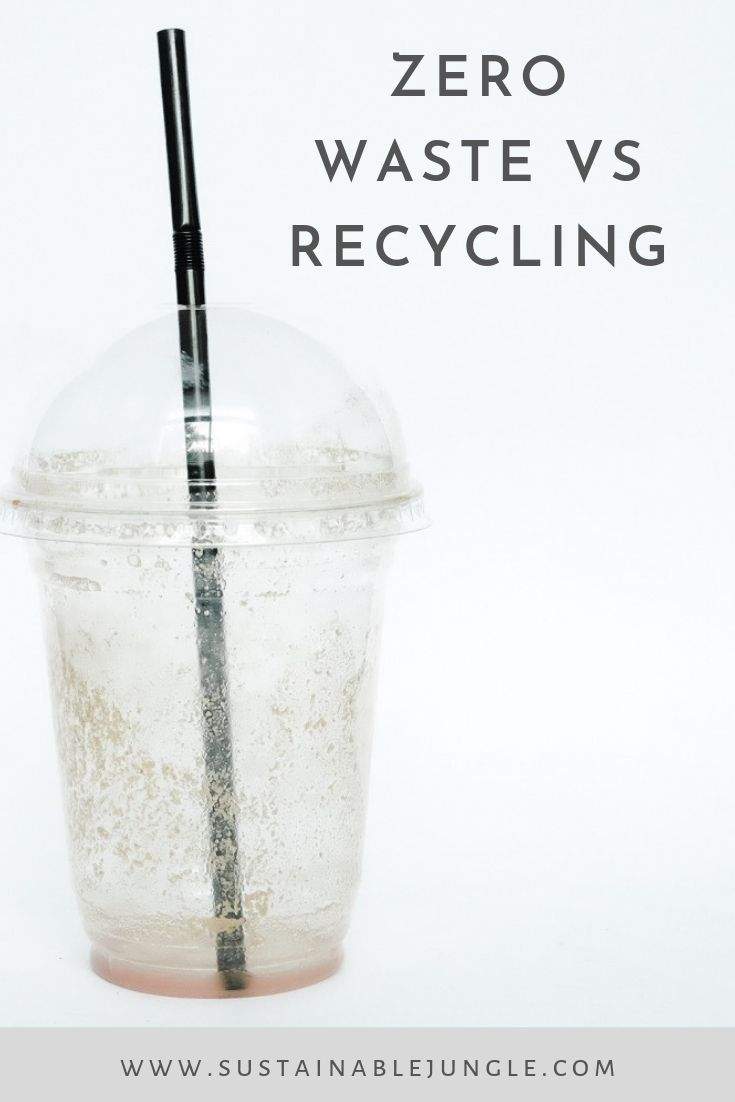


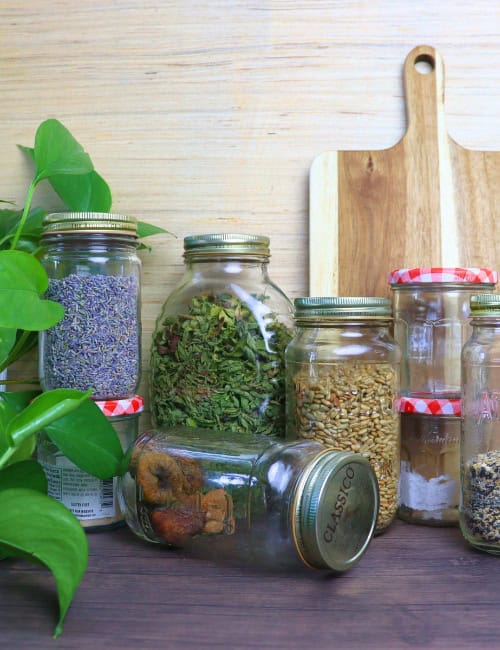
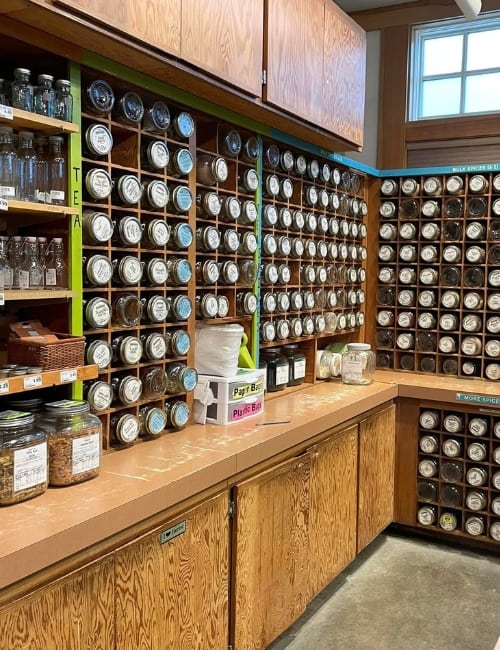
I’m glad you mentioned trying zero waste living to help with climate change. My sister is trying to decrease her carbon footprint by not wasting a lot of plastic. She should also try to use other products that don’t use plastic, like grocery bags.
For sure Taylor, there are so many ways we can all reduce our carbon footprint as inidividuals – take a look at this article which might help further: https://www.sustainablejungle.com/sustainable-living/how-to-reduce-your-carbon-footprint/
Knowledgeable article… Completely Agreed…..Zero waste reduces climate impact and conserves resources and minimizes pollution. Recycling is also a very powerful aspect of environmental sustainability. SwagCycle will help you recycle, up-cycle your branded merchandise to keep these items out of landfills and make a difference in the community and the environment.
Thanks! SwagCycle sounds great!